Pediatricians take aim at juice: It ‘has no essential role in healthy, balanced diets of children’
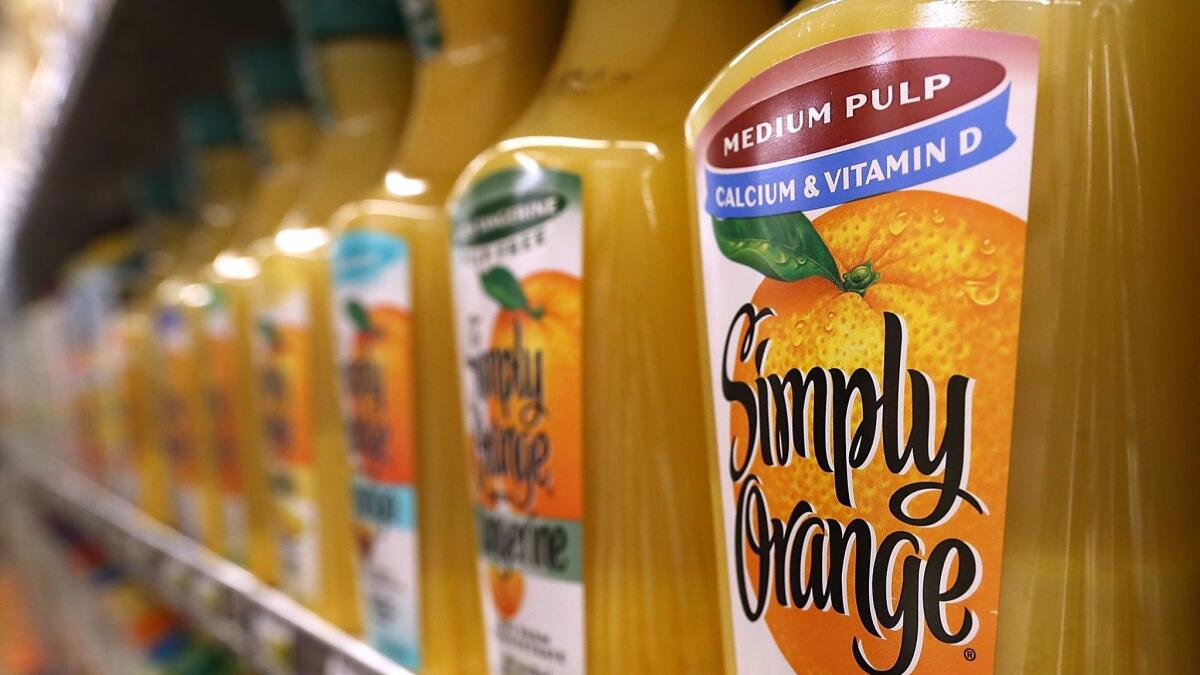
The
If you’re craving something fruity and refreshing, try eating a piece of fruit instead. If you’re thirsty, you can wash it down with some water.
Sure, juice has some things going for it. It can be an excellent source of vitamin C, vitamin A and potassium, among other nutrients. It also contains antioxidants, which may help ward off cancer and cardiovascular disease.
All those things are true about fruit as well — plus it contains fiber. That’s good for you because it helps keep your blood sugar in check, reduces cholesterol and cleans your colon. And it can help prevent unwanted weight gain, since it takes much longer to eat a piece of fruit than it does to drink the juice it contains.
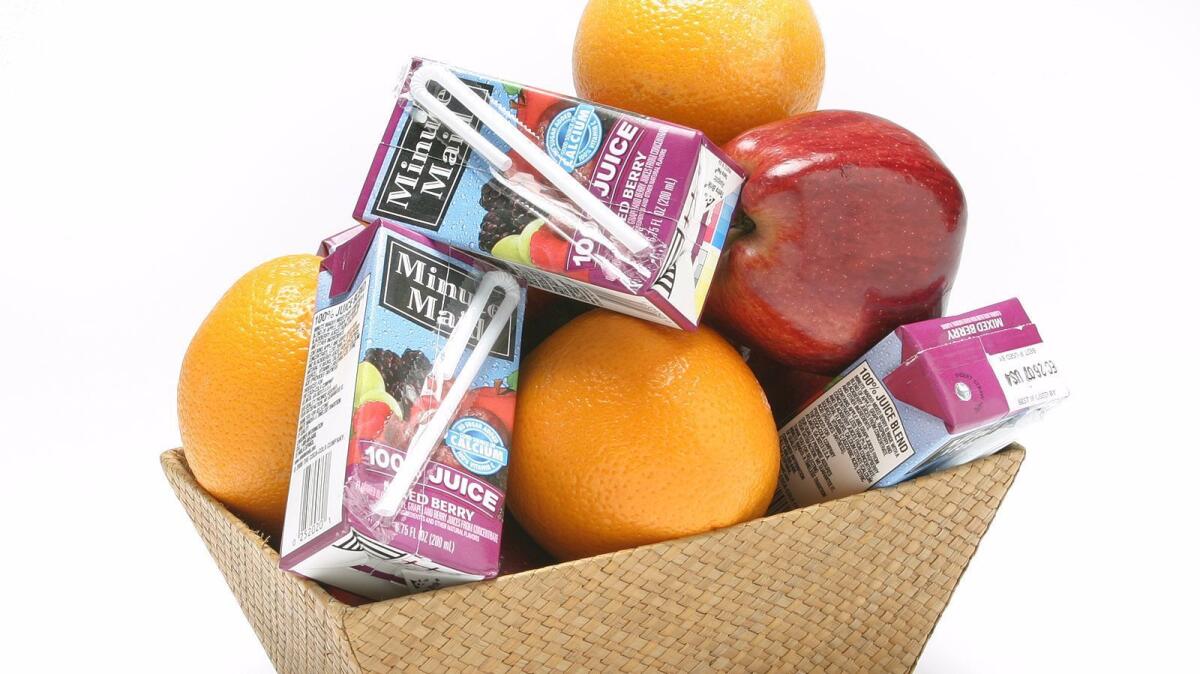
Fruit also beats juice when it comes to fighting tooth decay. When kids carry around sippy cups with juice — or worse, take it to bed with them in a bottle — their teeth are continuously exposed to carbohydrates. That leads to cavities.
Despite all this, juice remains a popular beverage for kids and teens. For Americans between the ages of 2 and 18, almost half of the fruit they consume is in the form of juice
That needs to change, pediatricians say. The Academy’s position statement, released Monday, boils it down succinctly: “Fruit juice offers no nutritional advantage over whole fruit.”
Here’s a look at the new advice and how it breaks down for kids of different ages:
Infants younger than 6 months
No juice at all. Zip. Zilch.
For about the first six months of life, the only thing that should pass an infant’s lips is breast milk or infant formula. (The Academy prefers breast milk but says formula is an acceptable alternative.)
“No additional nutrients are needed,” the statement says.
If caregivers substitute juice for milk or formula, babies risk missing out on all the protein, essential fats and nutrients like calcium, iron and zinc that their growing bodies require. So not only is juice not helpful, it actually can be harmful, the pediatricians warn.
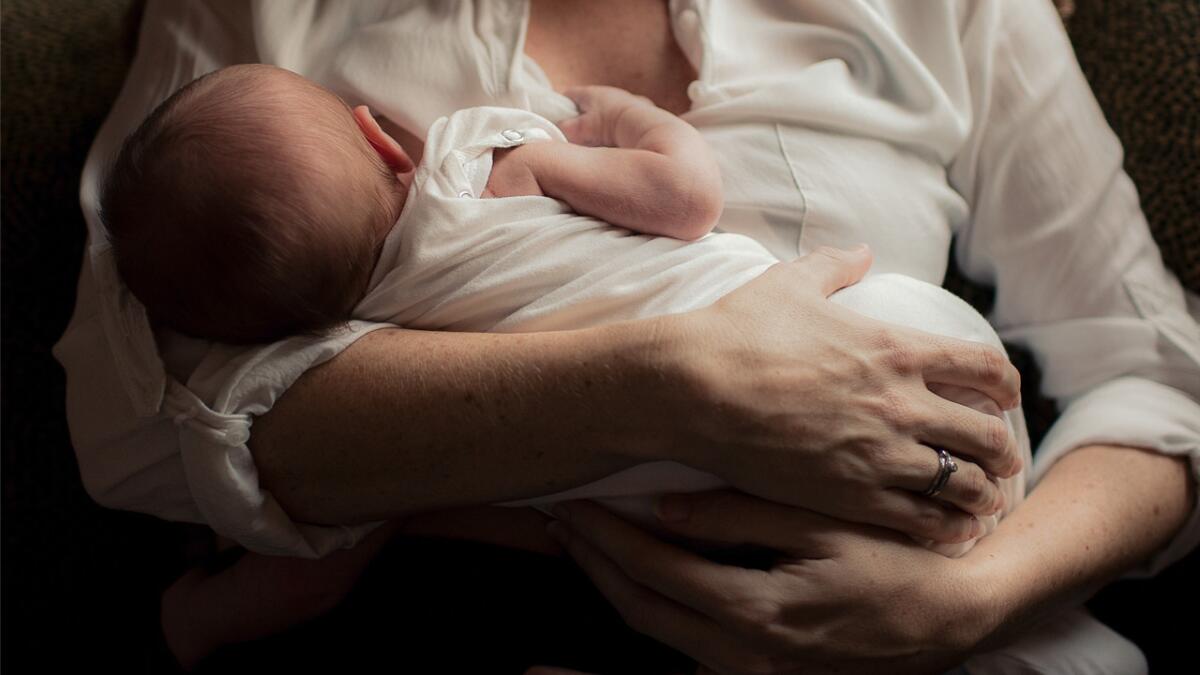
Infants 6 months to 1 year
Babies in this age group start eating solid foods, and fruit – often mashed or pureed – should become part of their diet. But in most cases, liquids should be restricted to breast milk, formula or water.
“It is optimal to completely avoid the use of juice in infants before 1 year of age,” the statement says.
If parents opt to give their babies juice anyway, the pediatricians offer this advice:
- Limit juice intake to 4 ounces per day.
- Serve juice in a cup, not a bottle.
- Do not put babies to bed with juice that they can sip throughout the night.
- If the goal is to rehydrate a baby with acute gastroenteritis, use electrolyte solutions instead of juice.
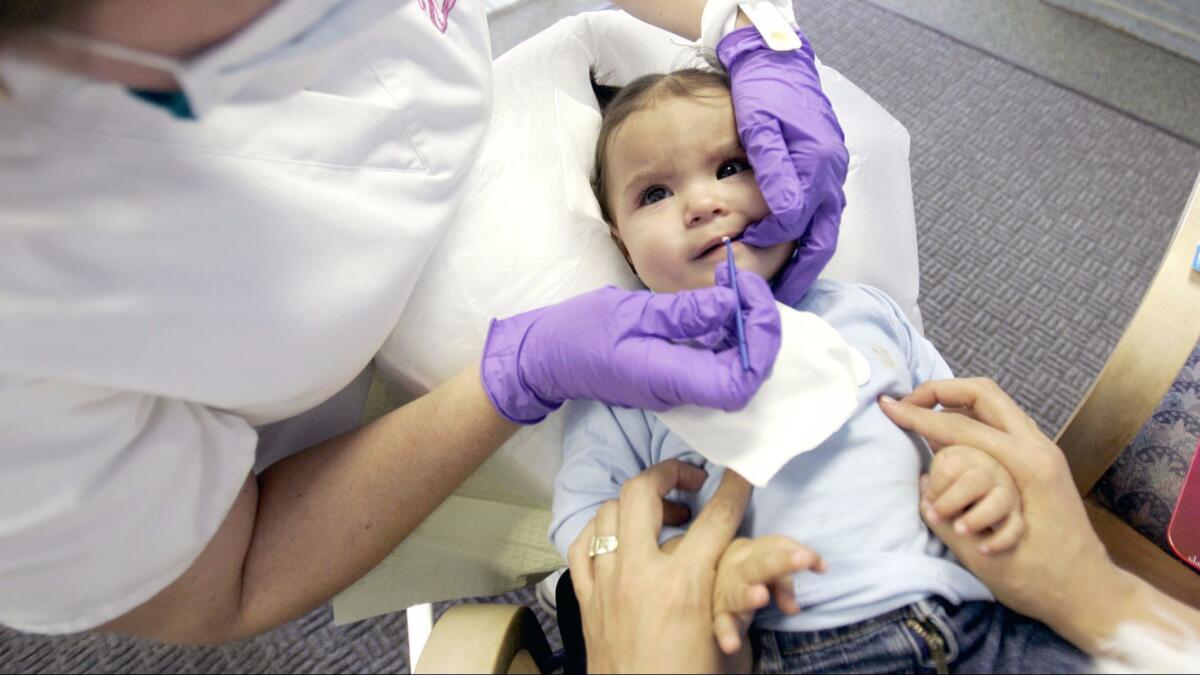
Toddlers and children 6 and younger
The Academy warns parents that they start out at a disadvantage when it comes to keeping juice away from toddlers and preschool-age children.
“Fruit juice and fruit drinks are easily overconsumed by toddlers and young children because they taste good,” the statement says. “In addition, they are conveniently packaged or can be placed in a bottle or transportable covered cup and carried around during the day.”
But parents should not give in. They should continue to encourage their kids to eat whole fruit instead of drinking juice. (Pediatricians, too, are encouraged to support public policies that back fruit over juice.)
To drive home its point, the Academy compares juice to sugary soda pop: “Like soda, it can contribute to energy imbalance.” (That’s doctor-speak for consuming too many calories.)
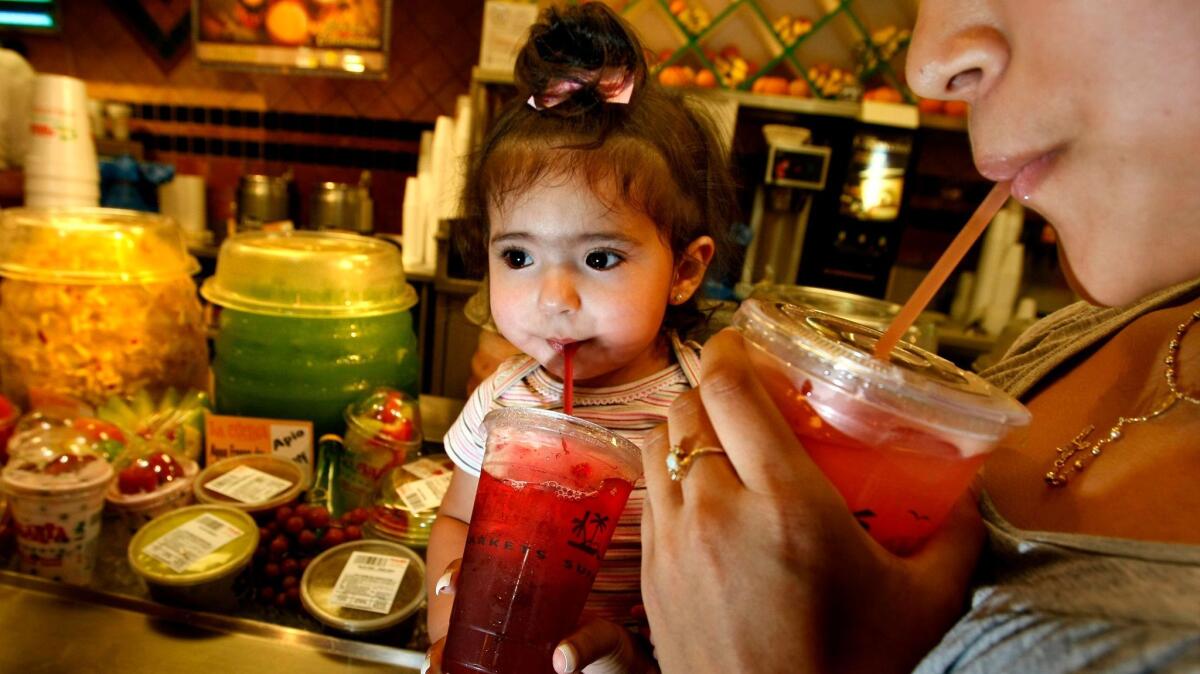
If parents insist on serving juice, they should limit it to 4 ounces per day for children between ages 1 and 3, and to 6 ounces per day for those 4 to 6.
Parents should also make sure the juice has been pasteurized, the Academy advises. If not, kids risk exposure to dangerous pathogens like E. coli, Salmonella and Crytposporidium.
Older children and teens
By age 7, children typically consume less juice, so there’s less for parents to worry about. Even so, they should not drink more than 8 ounces of juice per day — and amount that represents half of the daily calories that should come from fruit.
Kids and parents should also keep in mind that fruit juice and fruit drinks are not the same. Anything other than 100% juice must be labeled as a juice “drink,” “cocktail” or “beverage.” These items may be fortified with vitamins or calcium, but they may also contain added sugars and other flavors.
Some studies have found an association between heavy juice consumption — in excess of 12 ounces per day — and obesity. However, other research has found that kids who drank more juice had lower BMIs than kids who drank less juice — and still others found no link between juice and obesity at all.
“More research is required to better define this relationship,” the statement says.
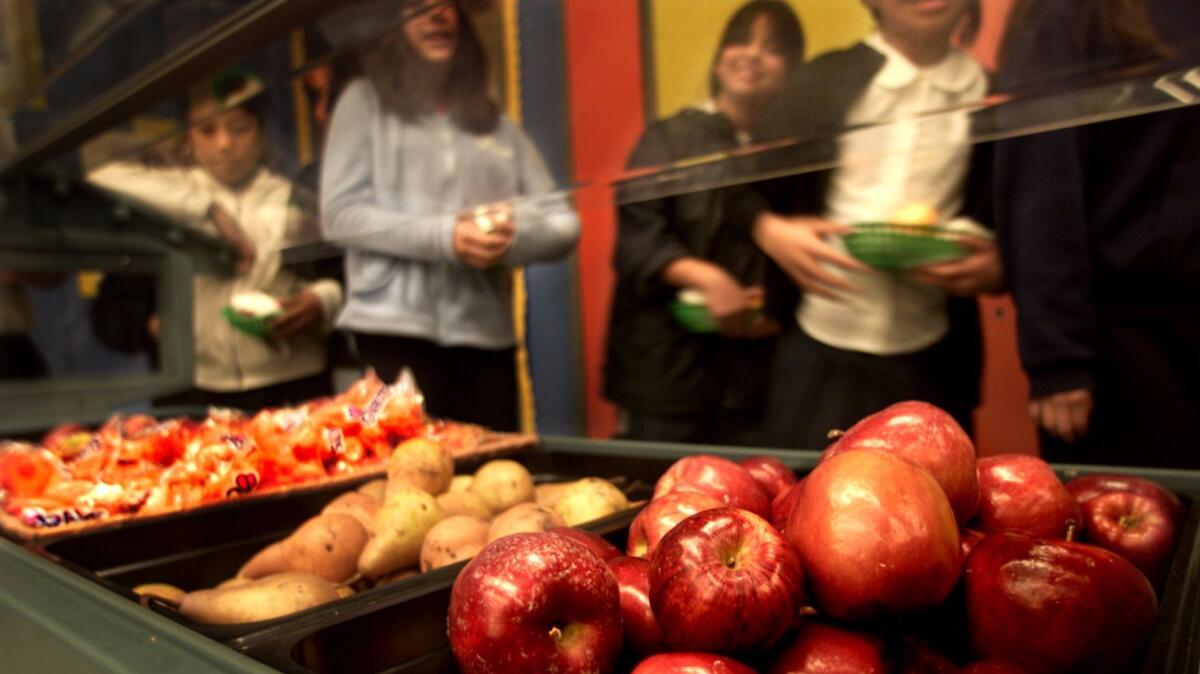
In the meantime, you won’t go wrong if you remember this:
“Fruit juice,” the Academy says, “has no essential role in healthy, balanced diets of children.”
Follow me on Twitter @LATkarenkaplan and "like" Los Angeles Times Science & Health on Facebook.
MORE IN SCIENCE:
In 2016, scientists discovered 18,000 new species. Now meet the Top 10
Southern California, this is your chance to see some of the most 'extreme' mammals that ever lived
Rising sea levels could mean twice as much flood risk in Los Angeles and other coastal cities




